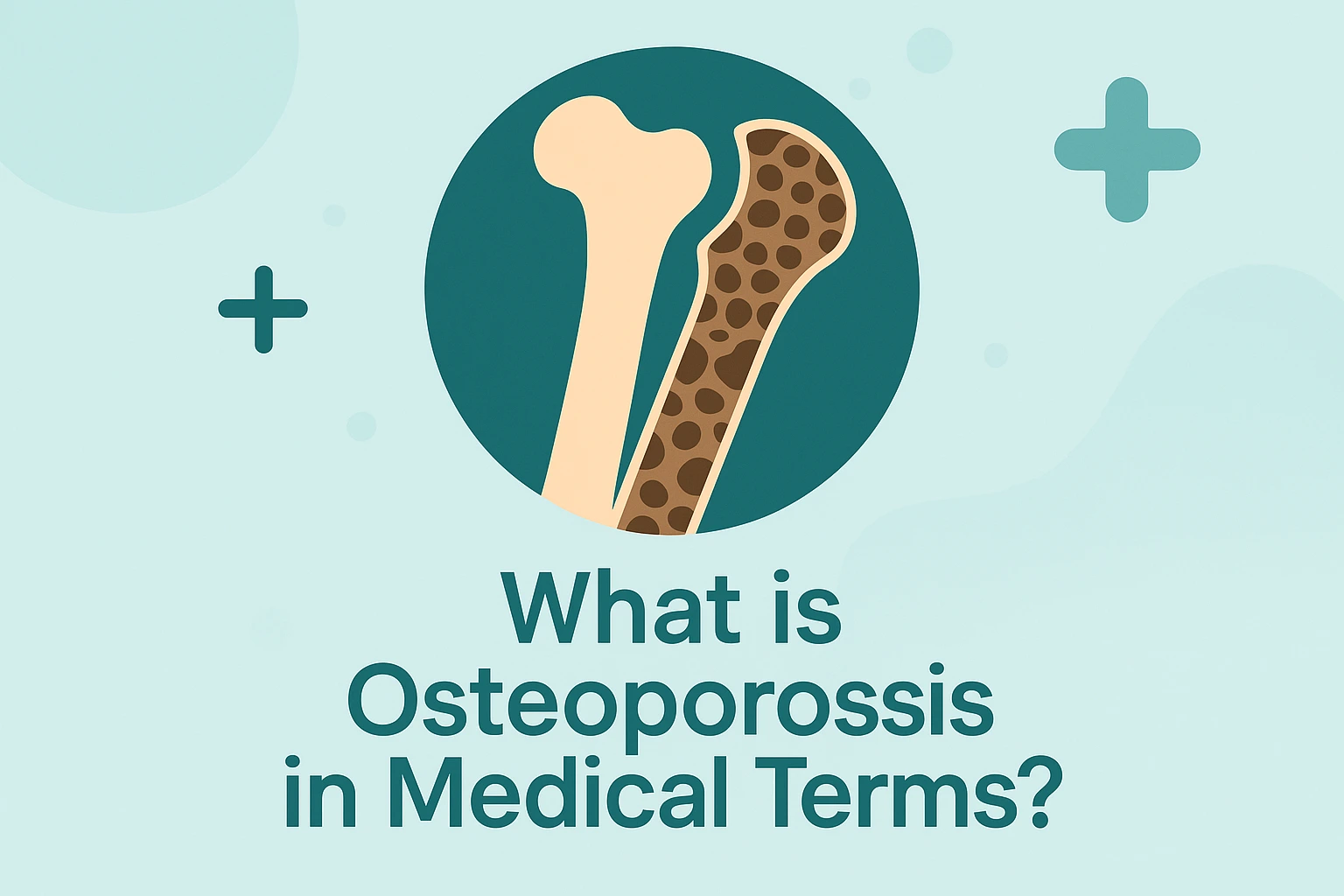Osteoporosis is a bone disease that occurs when bones become weak and brittle, increasing the risk of fractures. The condition develops gradually, often without any symptoms, and is typically diagnosed only after a bone fracture occurs. Osteoporosis is characterized by low bone mass and structural deterioration of bone tissue, which makes the bones more fragile and prone to breaks, especially in areas like the spine, hips, and wrists.

Symptoms of Osteoporosis
Symptoms of osteoporosis include various signs of weakened bones. These signs can indicate the need for further evaluation.
- Fractures with minimal trauma or a fall.
- Loss of height over time.
- Stooped posture or kyphosis, also known as a “dowager’s hump.”
Causes of Osteoporosis
Common causes and risk factors for osteoporosis include several contributing factors. These factors can lead to reduced bone density and strength.
- Age: As people age, bone density naturally decreases, and the risk of osteoporosis increases, particularly after the age of 50.
- Gender: Women are at a higher risk, especially after menopause, due to the decrease in estrogen levels, which protect bone health.
- Family history: A family history of osteoporosis or bone fractures increases the likelihood of developing the condition.
- Dietary factors: A diet low in calcium and vitamin D can contribute to bone loss.
- Physical inactivity: Lack of weight-bearing exercises, such as walking or resistance training, weakens bones over time.
- Medical conditions: Certain diseases such as rheumatoid arthritis, diabetes, and hyperthyroidism can increase the risk of osteoporosis.
- Medications: Long-term use of medications such as steroids and anti-seizure drugs can weaken bones.
When to See a Doctor Osteoporosis?
Seek medical advice if you suspect osteoporosis. Look for unexplained fractures, significant back pain, or noticeable changes in posture. Emergency care is necessary for symptoms like fainting, chest pain, or confusion.
Related Terms of Osteoporosis
FAQs for Osteoporosis
When should I go to the ER for osteoporosis?
If you experience severe pain, fainting, or confusion, seek emergency care immediately.
How does heat affect osteoporosis?
In hot climates like the UAE, dehydration can impact bone health; ensure adequate hydration, especially during fasting or long-haul travel.
Can I reduce my risk of osteoporosis?
Maintaining a balanced diet and engaging in regular exercise can support bone health.
